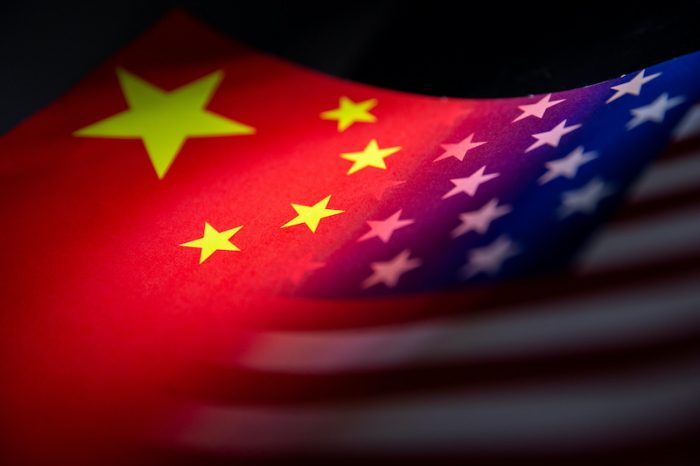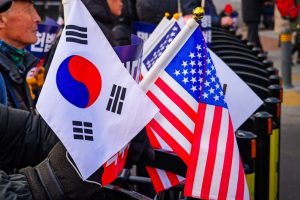Chinese companies figured prominently on the latest additions announced on Thursday to the US government’s trade blacklist.
A further 38 companies from six countries – China (28), Pakistan (4), Myanmar (3), Belarus, Russia and Taiwan – were put on the US Department of Commerce’s Entity List for a range of reasons.
They include units of Chinese genomics giant BGI allegedly used to repress ethnic minorities in China, plus firms allegedly helping to develop ballistic missiles, or helping China’s military to modernize, and companies “providing surveillance equipment and services to Burma’s military regime”.
The US Department of Commerce, which oversees export controls, said BGI Research and BGI Tech Solutions (Hongkong) pose “a significant risk” of contributing to Chinese government surveillance. Also listed was BGI’s forensics subsidiary, Forensics Genomics International.
“The addition of these entities is based upon information that indicates their collection and analysis of genetic data poses a significant risk of contributing to monitoring and surveillance by the government of China, which has been utilized in the repression of ethnic minorities in China,” the statement said.
ALSO SEE:
US ‘Discussing Possible China Sanctions’ With Allies Over Ukraine
Genetic data from ethnic minorities
Previously it was reported that BGI was collecting genetic data from millions of women for sweeping research on the traits of populations, and collaborates with China’s military.
In 2020, the Commerce Department added two units of BGI Group, the world’s largest genomics company, to its economic blacklist over allegations it conducted genetic analyses used to further the repression of China’s minority Uyghurs.
Beijing has denied wrongdoing. BGI denied allegations of wrongdoing at the time, saying it “does not engage in unethical practices and does not provide gene technology for the surveillance of Uyghurs,” CNN reported.
Chinese cloud computing firm Inspur was also among the latest additions, which are likely to further strain relations with Beijing.
The Commerce Department accused Inspur of acquiring and attempting to acquire US goods to support China’s military modernization efforts.
The companies and the Chinese embassy in Washington did not immediately respond to requests for comment.
Being added to the Entity List makes it hard for targeted companies to receive shipments of US goods from suppliers.
Links to Russian military, Pakistani missiles, Burmese army
This week’s additions includes several entities that Commerce officials said were supplying or attempting to supply a sanctioned entity in Iran, three firms in Russia, plus others in Belarus and Taiwan said to be contributing to Russia’s military.
It also targeted companies in China and Myanmar for violations of human rights, and went after companies in China and Pakistan for contributing to ballistic missile programmes of concern, including Pakistan’s.
“When we identify entities that pose a national security or foreign policy concern for the United States, we add them to the Entity List to ensure we can scrutinize their transactions,” Assistant Commerce Secretary Thea Kendler said in a statement.
Tensions between Washington and Beijing have been high since the Biden administration last month shot down a suspected Chinese spy balloon that had crossed the US mainland.
“We cannot allow our adversaries to misuse and abuse technology to commit human rights abuses and other acts of oppression,” Assistant Secretary of Commerce for Export Enforcement Matthew Axelrod said.
“That’s why we’re committed to preventing bad actors from siphoning off our technology. We will take an all-tools approach to combat this threat.”
- Jim Pollard with Reuters
ALSO SEE:
China Has Big Lead in Critical Emerging Technologies: Study
US Warns China Will Face ‘Real Costs’ for Lethal Aid to Russia
Chinese Firm in Talks to Sell Military Drones to Russia: Report
Blinken Warning on ‘Lethal Aid’ for Russia Strains China Ties
China’s Xi Planning Russia Visit to Boost ‘Rock Solid’ Ties
























